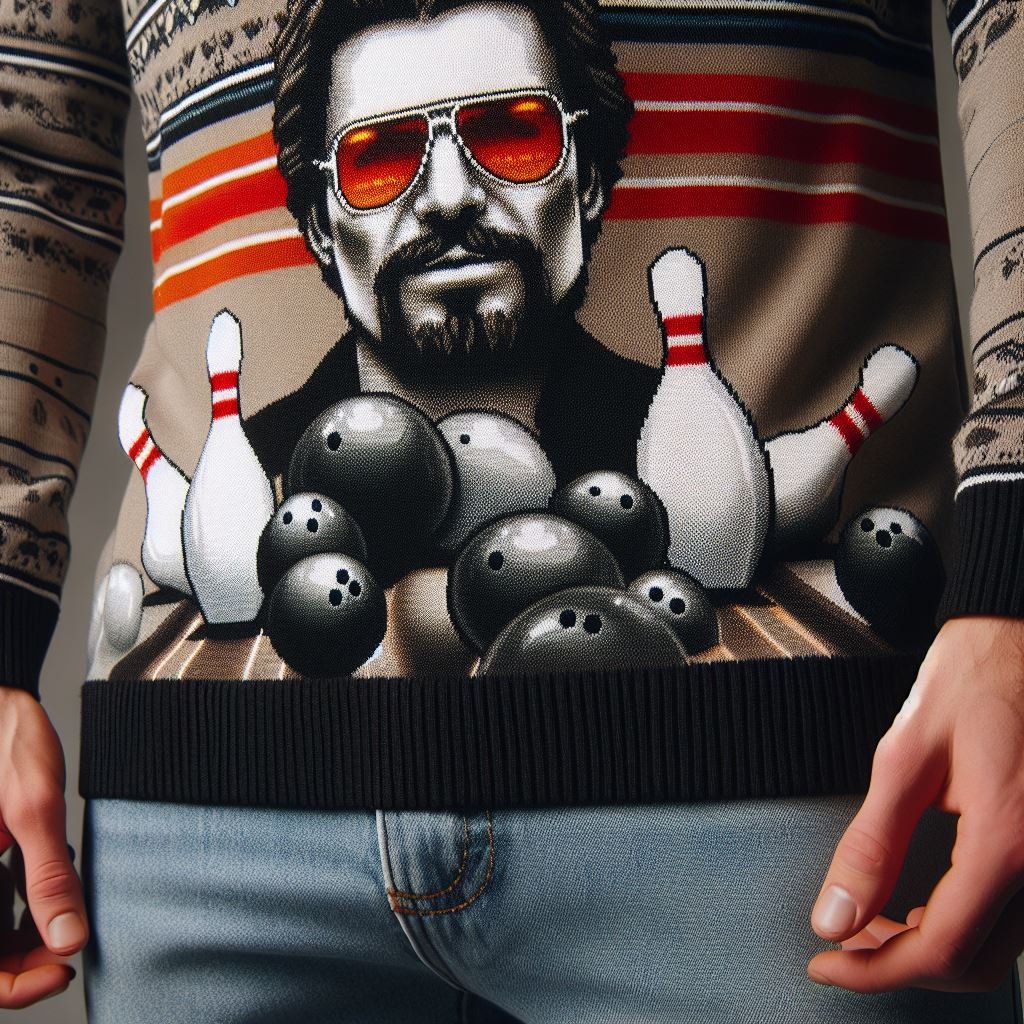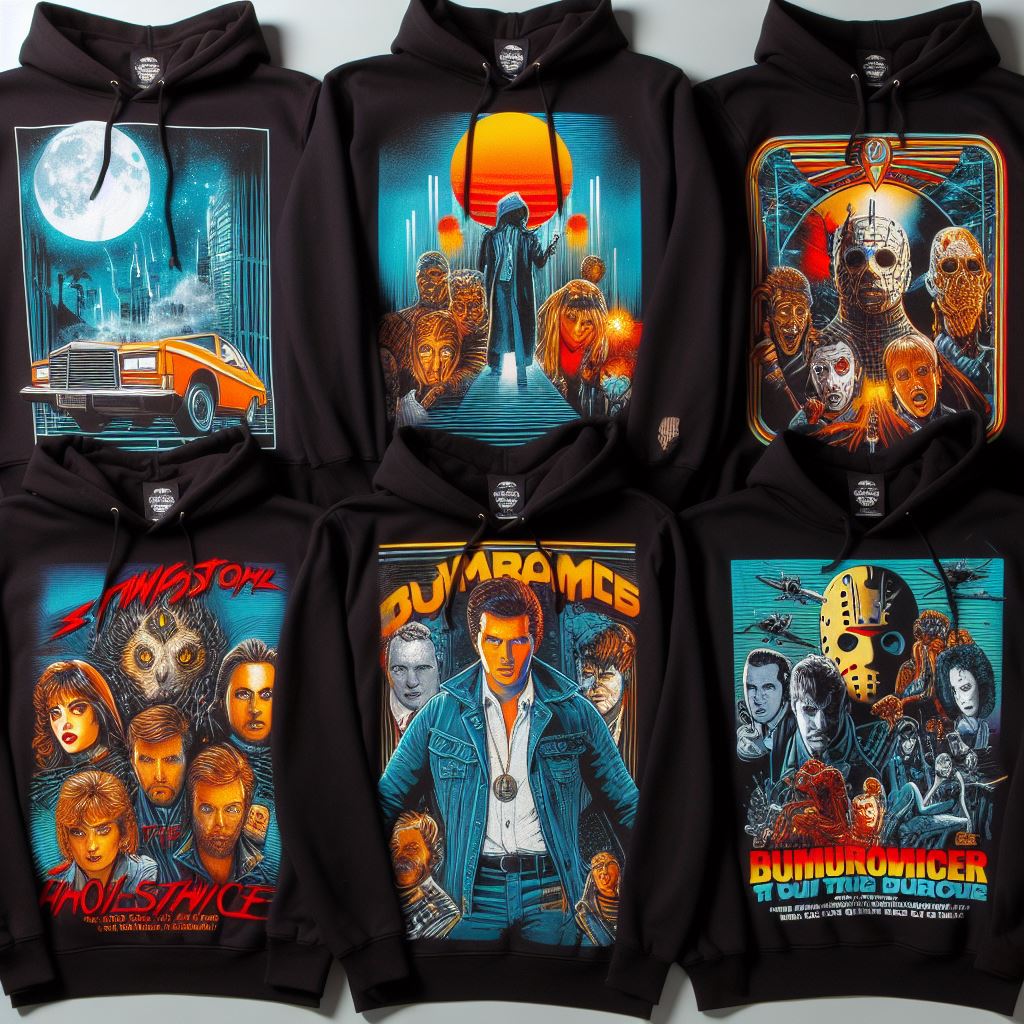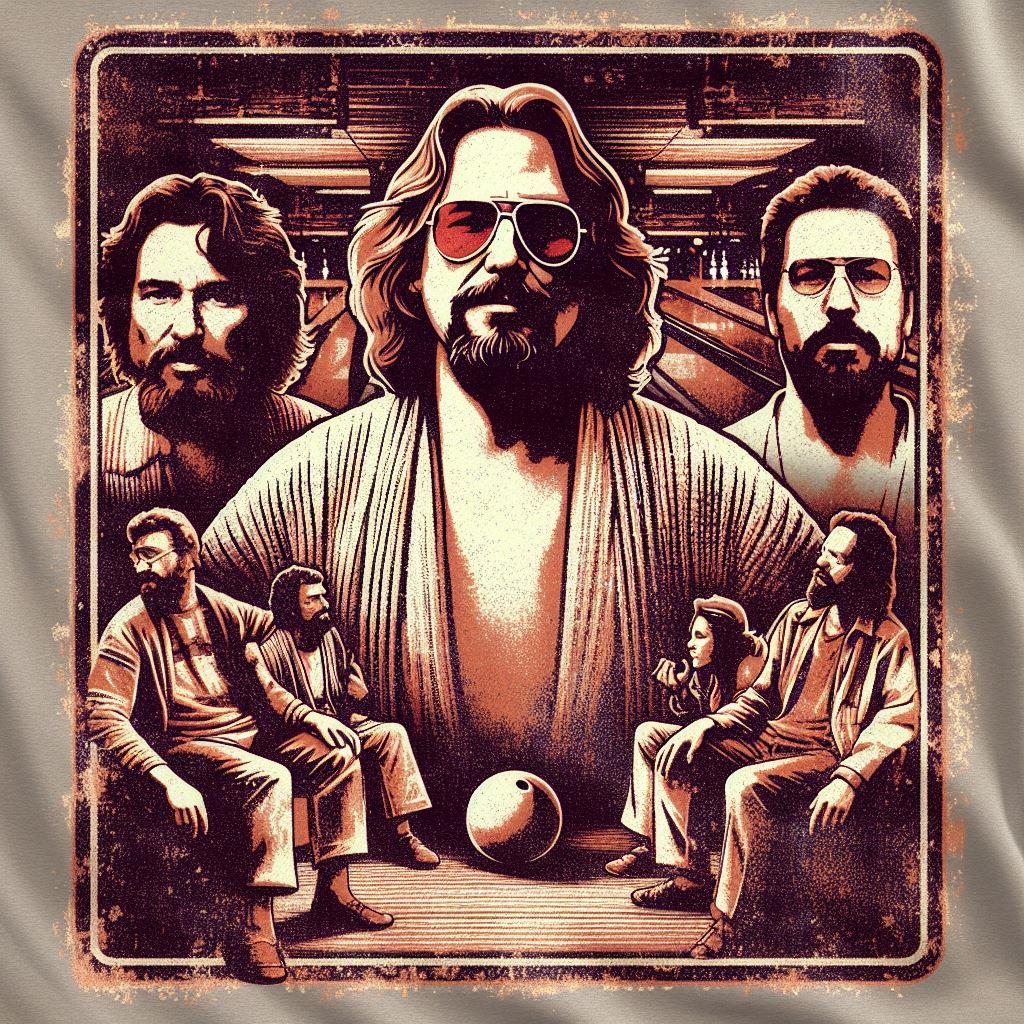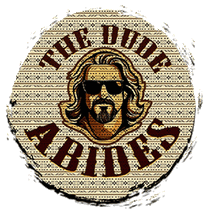
Unraveling The Big Lebowski: What's It Really About?
Welcome to a world where the lines between laid-back indifference and profound wisdom blur, and where a tale of mistaken identity unfolds into an odyssey of bizarre encounters and existential musings. The cult classic 'The Big Lebowski' is more than just a film; it's a philosophical journey that has captivated audiences for decades. But what is The Big Lebowski really about? This question has intrigued fans and critics alike, sparking countless discussions and analyses.
As a purveyor of all things Dude-like, 'The Dude Abides' Online Shop invites you to explore this enigmatic narrative through our unique lens. Our collection, inspired by the film's indelible characters and memorable quotes, is not only a tribute to the movie but also a way to delve deeper into its layered themes. For those seeking to understand the movie's deeper meanings, or simply to express their love for the film, we offer a range of products that embody the spirit of The Dude.
Whether you're a long-time aficionado or a newcomer to the film's ethos, our specially curated merchandise provides a gateway to embracing the film's essence in your daily life. Click on the product links to view the Dudes designs and start your journey into the heart of 'The Big Lebowski.'
The Multilayered Themes of The Big Lebowski

At first glance, 'The Big Lebowski' may appear to be a simple comedy about a quirky slacker, but beneath its surface lies a tapestry of rich, multilayered themes. The film cleverly weaves together elements of nihilism, existentialism, and the search for meaning in a postmodern world. It's this complexity that has solidified the movie as an enduring piece of pop culture.
One of the central themes is the idea of identity and the masks we wear. The protagonist, Jeffrey Lebowski, famously known as The Dude, defies the conventional image of a hero and challenges societal norms with his carefree attitude. Yet, he becomes entangled in a series of events that force him to confront his place in the world. The film also explores the notion of fate versus chance, as The Dude's laid-back approach to life is constantly juxtaposed against the chaotic and often absurd world around him.
Furthermore, the movie touches on the impact of war and the American dream, particularly through characters like Walter Sobchak, whose experiences in Vietnam deeply affect his worldview. The narrative also satirizes the excesses and emptiness of materialism, as seen through the ostentatious lifestyle of the other Jeffrey Lebowski.
These themes resonate with audiences because they reflect the universal human experience. The film doesn't provide clear-cut answers but instead presents a kaleidoscope of perspectives, inviting viewers to ponder their own beliefs and values. 'The Big Lebowski' remains a cultural touchstone, not only for its humor but for its profound exploration of life's great questions.
Cultural References and Symbolism Explored

'The Big Lebowski' is a treasure trove of cultural references and symbolism that contribute to its cult status. The film is set against the backdrop of early 1990s Los Angeles, a period marked by political change and social unrest. This setting becomes a character in itself, as various subcultures and historical events are cleverly referenced throughout the movie, providing a rich context for the narrative.
The film's symbolism is perhaps most evident in its character archetypes. The Dude represents the ultimate anti-establishment figure, a relic of the 1960s counterculture movement, navigating through a world he seems out of sync with. In contrast, the character of Maude Lebowski channels the feminist art movement, using her work as a means of social commentary. The film also includes nods to the rise of technology and corporate influence, which would come to dominate the American landscape in the years following the film's release.
Coen Brothers' aficionados might also note references to classic film noir and the detective genre, with The Dude unwittingly playing the role of a hapless gumshoe. Bowling, a recurring motif in the film, symbolizes the characters' quest for transcendence and meaning, with the bowling alley serving as a sanctuary from the chaos of their lives.
From its soundtrack to its dialogue, 'The Big Lebowski' is peppered with allusions that range from the obscure to the iconic. The film's enduring appeal lies in its ability to be both a product of its time and a timeless commentary on the human condition, wrapped in a shroud of humor and wit that continues to captivate audiences decades after its release.
Character Analysis: Beyond The Dude's Bathrobe
Delving into the wardrobe and beyond, each character in 'The Big Lebowski' is meticulously crafted to reflect deeper aspects of their personality and role in the story. The Dude's bathrobe, often seen as a symbol of his laissez-faire approach to life, is just the tip of the iceberg. His casual attire reflects his resistance to societal norms and a stubborn adherence to his own code of conduct. The Dude is an embodiment of a man content with being an outlier, his bathrobe a flag of comfort over conformity.
John Goodman's portrayal of Walter Sobchak, with his Vietnam War vestiges and explosive demeanor, provides a glimpse into the psyche of a man unable to release the grip of the past. Walter's intense loyalty and quick-to-judge attitude often drive the plot into realms of unexpected chaos, yet his character is a complex mix of bravado and vulnerability.
Donny, the oft-ignored sidekick, symbolizes the innocence and obliviousness that contrasts sharply with the film's darker edges. His character's simplicity and intermittent engagement with the unfolding drama offer moments of comic relief, but also a subtle commentary on bystander culture.
The sartorial choices and characteristics of other figures in the film, such as the meticulously groomed and authoritarian Big Lebowski or the avant-garde artist Maude, serve as visual and behavioral cues to their personas. Each character, through their distinct style and demeanor, adds layers to the film's narrative, inviting viewers to look beyond the surface and find meaning in the details.
Character analysis in 'The Big Lebowski' is not just about the clothes they wear but the intricate web of traits they represent. Together, they form a tableau of eccentricity and depth, inviting endless interpretation and analysis.
The Philosophy of The Big Lebowski: Existentialism and Nihilism

At its core, The Big Lebowski is a film that deftly intertwines elements of existentialism and nihilism, presenting a philosophical tapestry that has intrigued academics and fans alike. The existentialist themes are evident through The Dude's journey, which mirrors the classic existential quest for meaning in a seemingly indifferent universe. His character embodies the philosophy that individuals are responsible for imparting meaning to their own lives, a notion that is constantly challenged by the absurd and often chaotic events he finds himself embroiled in.
Nihilism also plays a central role in the narrative, most notably through the characters of the nihilists who overtly claim that 'nothing matters.' This stark viewpoint serves as a foil to The Dude's existential search, showcasing a philosophical conflict that is as humorous as it is profound. The film doesn't just pit these ideologies against each other; it also explores the gray areas between them, where the characters live, make choices, and find their own paths.
The contrast between The Dude's relaxed, go-with-the-flow attitude and Walter's rigid, rule-bound perspective further illustrates the clash of existential freedom versus the comfort of structured beliefs. The movie invites viewers to ponder the value of their own beliefs and the nature of reality, encouraging a reflection on how we assign meaning to our lives amidst the chaos.
'The Big Lebowski' ultimately suggests that the meaning of life, much like the plot of the film itself, may be subjective and elusive. It challenges viewers to consider the roles that existentialism and nihilism play in their own lives, all while offering a narrative that is as entertaining as it is thought-provoking.
The Big Lebowski's Impact on Pop Culture

The Big Lebowski has transcended its initial cult classic status to become an iconic cornerstone of pop culture. Its impact is visible across various media, from film to fashion, and its quotable dialogue has infiltrated everyday language. The Dude, with his signature sweater and laid-back demeanor, has become an archetype of cool nonchalance. Fans of the film often gather at Lebowski Fests, which celebrate the movie's quirky characters and memorable lines, showcasing the film's ability to foster a sense of community among its devotees.
The movie's unique blend of comedy, crime, and philosophy resonates with audiences, and its themes have been the subject of scholarly analysis and debate. Merchandise bearing the film's catchphrases and imagery is in high demand, a testament to its lasting appeal. From graphic t-shirts to novelty rugs, these products enable fans to showcase their affinity for the film and its aesthetic.
Moreover, The Big Lebowski has inspired artists and creators, influencing a range of works from visual art to music. It has been referenced in countless other films and TV shows, cementing its position as a touchstone of American cinema. The film's distinctive style and characters have become a part of the collective consciousness, with The Dude often cited as a cultural icon of relaxation and resistance to societal pressures.
To immerse yourself in the world of The Dude and celebrate your love for this timeless film, click on the product links to view The Dude's designs. Embrace the film's legacy with apparel and accessories that capture its indelible spirit and join the ranks of fans who know that, when it comes to cult classics, The Big Lebowski truly abides.


